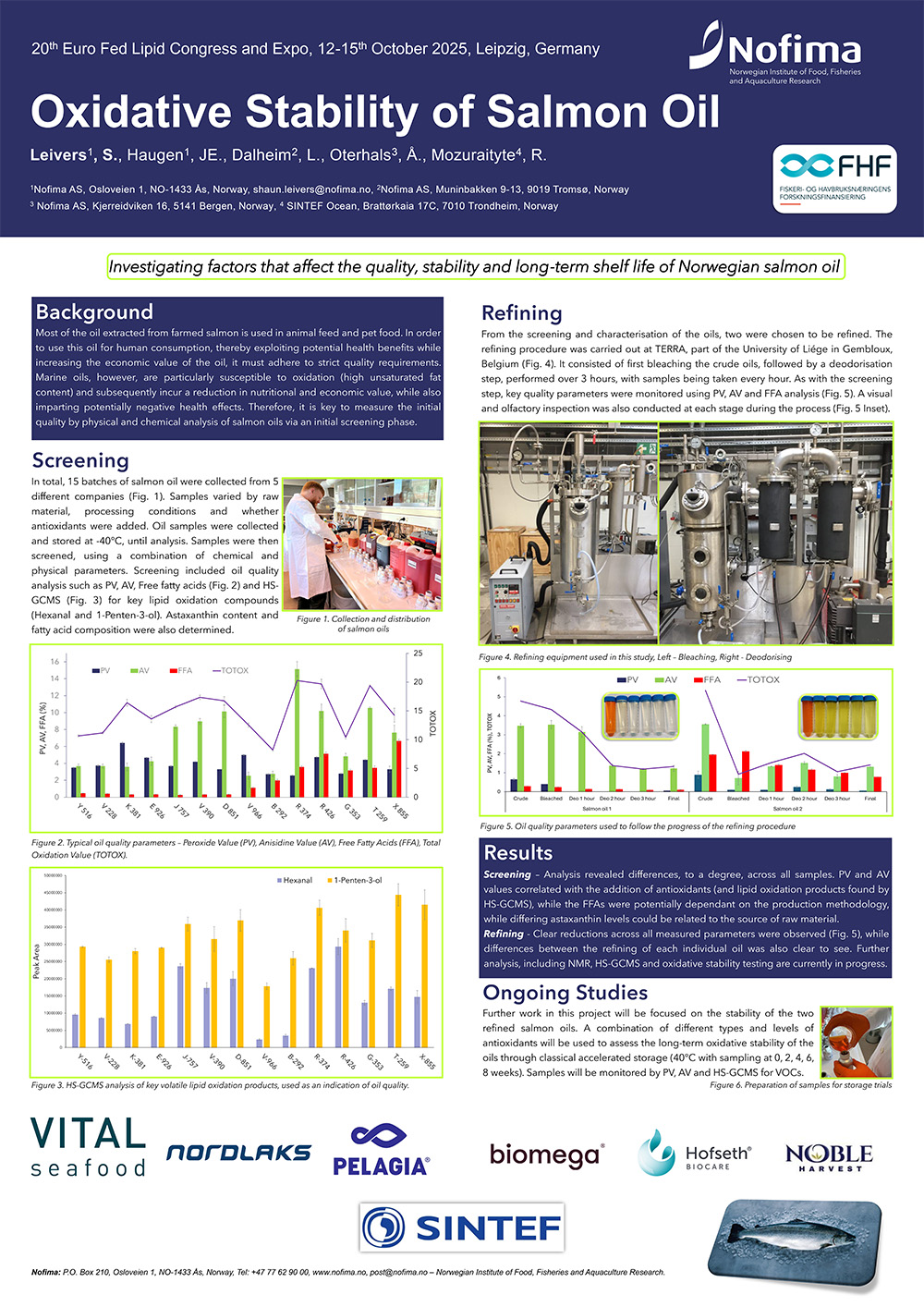Most of the oil extracted from farmed salmon is used in animal feed and pet food. In order to use this oil for human consumption, thereby exploiting potential health benefits while increasing the economic value of the oil, it must adhere to strict quality requirements. Marine oils, however, are particularly susceptible to oxidation (high unsaturated fat content) and subsequently incur a reduction in nutritional and economic value, while also imparting potentially negative health effects.
Therefore, it is key to measure the physical and chemical properties of salmon oils, by performing an initial screening, analyzing a variety of oils from different producers, differing in quality, amount and type of added antioxidants and alternative processing methodologies.
A selection of oils from the screening process are then chosen to undergo refining, comprising of an initial bleaching step, to remove oxidation products, residual water and environmental toxins, followed by deodorization, used to remove volatile compounds and to further break down residual oxidation products.
The resulting refined oils will then go through an extensive quality analysis, using a combination of long-term stability testing and classical accelerated storage experiments, to aid in understanding the degree of oxidation as well as oxidative capacity and overall stability of the oils. Furthermore, the addition of different amounts and combinations of antioxidants will be investigated.
